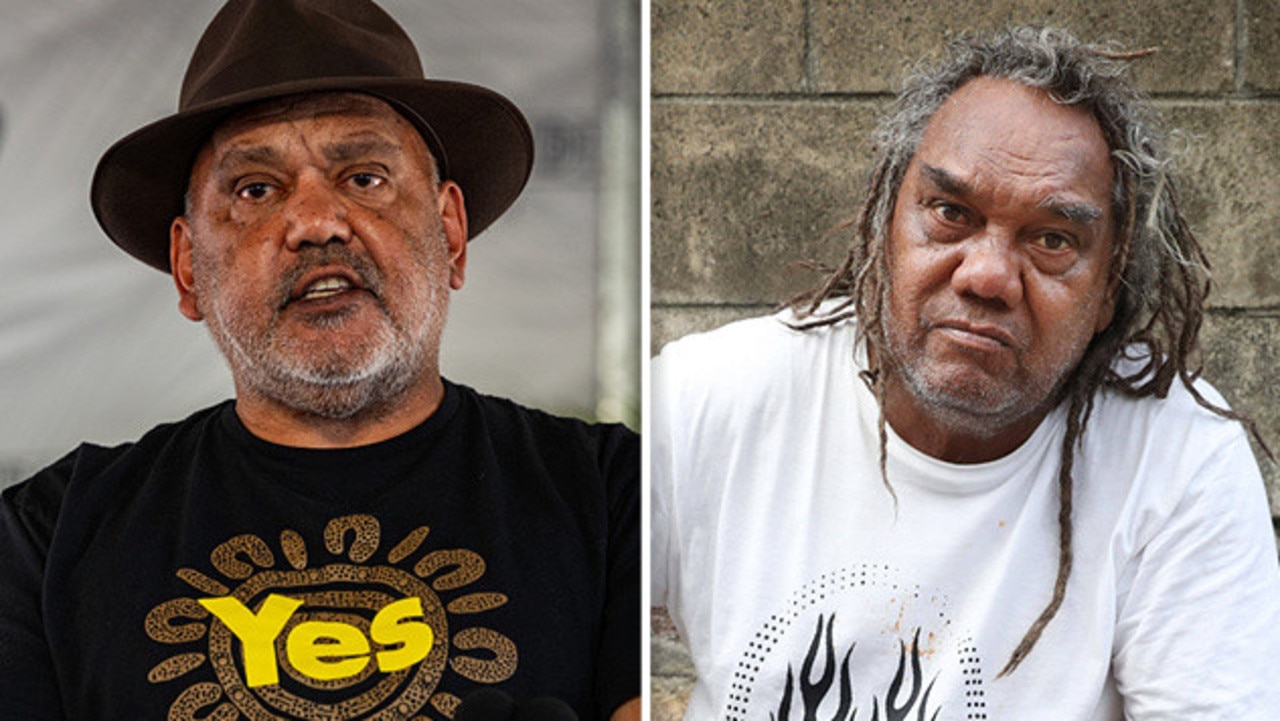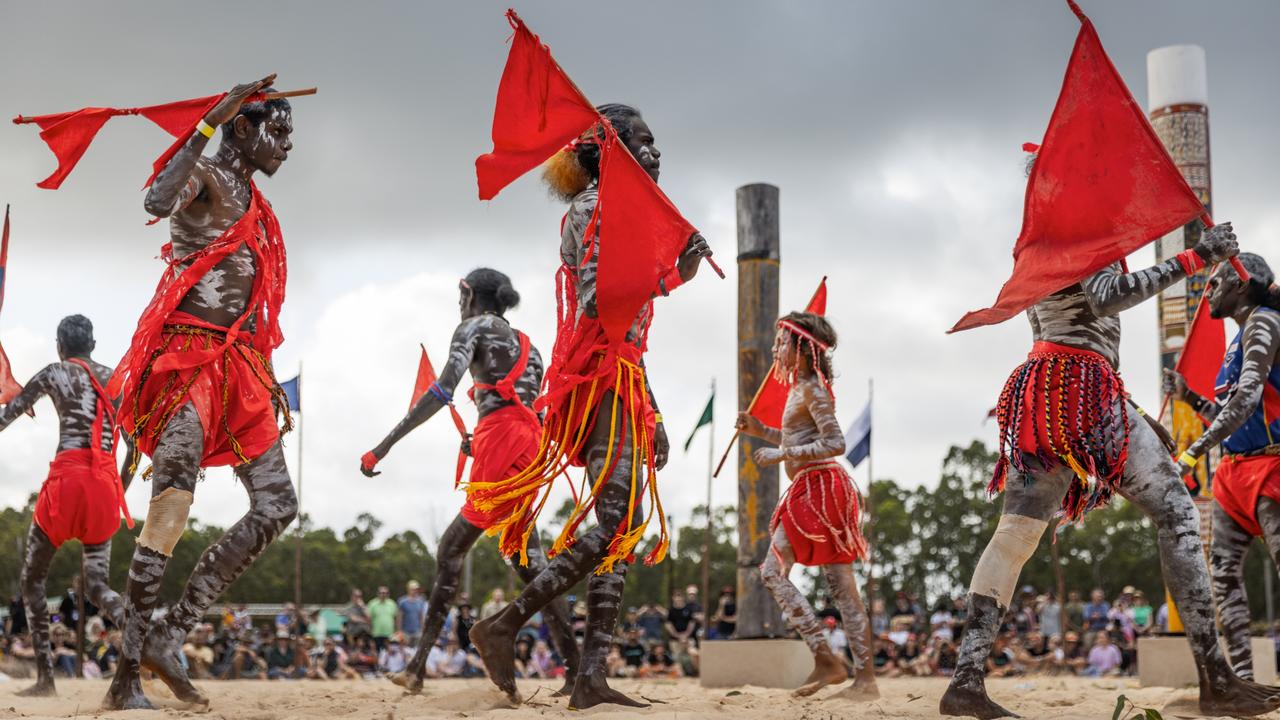RedBridge poll finds majority intend to vote No to Indigenous Voice To Parliament
An exclusive new poll has found a majority of people in every state and territory intend to vote No on the Indigenous Voice to Parliament.
The Yes case for the Voice is “almost unsalvageable”, with a new poll finding it is now behind with a majority of voters in every state and territory.
In the first survey to be taken since the release of the official Yes and No pamphlets last month, a RedBridge poll conducted exclusively for News Corp has found the No case is now ahead 56 per cent to 44 per cent nationally.
And, in a worrying omen for the Albanese government’s bid to entrench an Indigenous Voice to Parliament in the Constitution, the No case’s lead blew out to 59 per cent when voters were exposed to the arguments contained in the official material.
RedBridge found that after hearing the Yes and No cases, one in four people who said they were leaning towards supporting the Voice switched their vote to No.
It also found that at 37 per cent, the proportion of rusted-on No voters is almost twice the 21 per cent who say they are determined to vote Yes.

No is ahead 56-44 per cent in NSW, 55-45 per cent in Victoria, 63-37 per cent in Queensland, and 54-46 per cent in the other states and territories.
The RedBridge poll shows support for the Voice is dividing Australians by education level and income, with those with degrees and higher incomes in favour while the overwhelming majority of everyone else is against it.
Two-thirds of people with a Year 12 and TAFE education plan to vote No, while only 56 per cent of degree holders support the proposal.
Two-thirds of people with annual household incomes below $50,000 a year also say they plan to vote No.
The Voice is also overwhelmingly unpopular with voters aged over 65 and Protestants, three-quarters of whom don’t support it.
The only income group where Yes is ahead are those whose households earn more than $200,000 a year, 51 per cent of whom support it.
Other groups that favour the Voice are those aged 18-34 (63 per cent) and those speaking a language other than English at home (59 per cent).

Director at RedBridge Tony Barry said the research showed the yes23 campaign was “almost unsalvageable”.
“The yes23 campaign based their strategy on the premise that the republic referendum failed because people did not like the detail, and so the solution for this referendum was not to provide any detail,” Mr Barry said.
“In our research we are finding that in the absence of any detail, including why the Voice is essential to delivering tangible benefits for Indigenous Australians, opponents are now assigning real or perceived risks to the proposal which is further undermining public support.
“Right now, it’s all risk for no widely understood benefit.”
Mr Barry said the Yes campaign should be worried that half of its 44 per cent vote was “soft”, meaning the voters were not impassioned about voting Yes.
His RedBridge colleague Kosmos Samaras, a former Victorian ALP official, said the poll showed the Prime Minister should pull the referendum before it gets defeated.
“The smart play for Anthony Albanese is to say he’s going to focus on the cost of living crisis and housing attainability and hold the referendum next term and hope he can increase his majority at the next election off the back of an improved national economic outlook,” Mr Samaras said.
“The Indigenous Voice referendum is the right idea but the wrong time in the political cycle.”

The RedBridge survey of more than a thousand voters asked if they would vote Yes or No, with no ability to opt out or say they had not yet decided.
Voters were also asked how confident they are in their vote, and which campaign they believe is performing better.
When provided a list of potential reasons to vote Yes, the most popular reason was that the idea came directly from Aboriginal and Torres Strait Islander people (17 per cent).
Other popular reasons were that it would bring the country together, 14 per cent, and it would ensure people got a better life, 12 per cent.
When given reasons to vote No, the most popular reason at 22 per cent was that it would divide the country.
Other popular reasons to vote No were that there were not enough details, 16 per cent, and it would not actually help Indigenous people, 16 per cent.
While the Yes campaign is winning in certain demographics, generally Aussies believe the No campaign is performing better — 28 per cent said the No campaign was rating and communicating well, compared to 17 per cent for the Yes campaign.
The rest of the voters did not know either way.
In a worrying sign for the Yes campaign, even Labor voters are divided on the performance of the Yes campaign, with 21 per cent of those who voted for it last May saying the No campaign is performing better, compared to 22 per cent who said the Yes campaign is performing better.
Got a news tip? Email weekendtele@news.com.au




